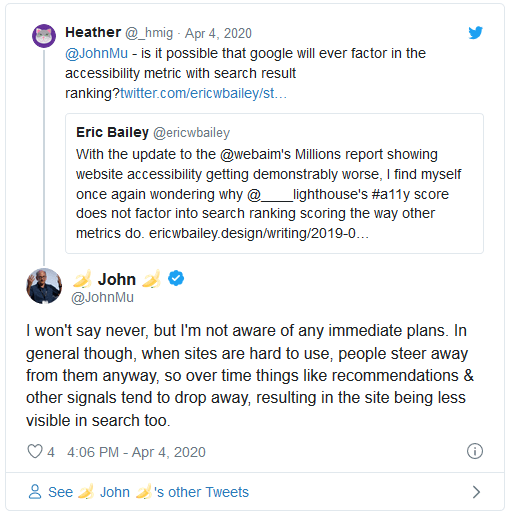This Is How You Can Prevent Google From Replacing Your Meta Description Tag
- 7 April, 2020
- Jason Ferry
- SEO Companies

Recently, John Mueller of Google provided a guide to assist affordable SEO companies and webmasters in making sure that their provided meta description tag appears in search results.
It was discussed in a Google Webmaster Central hangout when a question was raised by Vahan Petrosyan of Search Engine Journal.
He asked for recommendations from Mueller on how to prevent Google from replacing meta descriptions.
Mueller offers a number of reasons why Google doesn’t always utilise the meta description provided by a web page.
Afterwards, Mueller explains what a website owner and SEO professional can do to make Google use their preferred meta description tag.
Rewriting Meta Descriptions: Why Does This Happen?
It is not a new thing for Google to write a new meta description to display to replace the one actually found on a web page.
According to Mueller, here are the most likely reasons why this happens:
- The meta description is not useful or relevant (i.e., just a keyword collection).
- The exact meta description can be found in numerous web pages.
- The meta description doesn’t match what the searcher is looking for, but other content in the website does.
In general, Google rewrites meta descriptions to better assist searchers in understanding why a specific web page is relevant to their query.
Sometimes, it is beyond the control of the website owner and SEO experts.
It is quite impossible to make Google use the meta description tag you wrote at all times.
However, there are things you can do to make Google use your preferred meta description as much as possible.
Making Google Use Your Meta Description
According to Mueller, there’s a high possibility of Google with your meta descriptions if they fulfil these criteria:
- Unique meta descriptions produced for every single webpage.
- They match what searchers would be looking in general when going to that particular web page.
- They can fit in a search results snippet.
It must be noted that even if these criteria are met, Google may still go for a different meta description.
For example, if somebody enters a somewhat obscure query.
If the answer to that matches a certain snippet of text from the website, then Google will most likely replace your meta description with that snippet of text.
If you wish your actual meta description tag to be displayed for a specific query, then make certain that it is as relevant to the question as possible.
Here is Muller’s full answer:
“We try to do two things when it comes to displaying the descriptions in search results.
On the one hand we try to recognize when there’s irrelevant meta descriptions given on page, which could be like a collection of keywords.
It could be something where you have the same description across a large number of pages.
That’s something where we would probably jump in with our algorithms to try and resolve that.
And the other case is when the meta description is something that doesn’t match at all what the user is searching for.
Where we think probobably it would be easier for the user to understand why this page is relevant if we pick something from the page itself that covers those queries a little bit better with what they’re actually looking for.
Those are kind of the main situations where we end up rewriting the description that we provide in the search results.
So if you can make sure that your pages have unique meta descriptions, that are kind of short, that they would kind of fit into a snippet on a page, and that they match what users would generally be looking for when they’re going to that page then chances are pretty high that we’ll just reuse what you have in the description meta tag”.
This Is What Google Has To Say About Accessibility Being A Ranking Factor
Google has always mentioned it has to crawl, index, and rank and imperfect web. It means grammars and typographical errors, websites built without considering accessibility, broken markup, and a lot more. Google’s John Mueller was asked if he thinks accessibility would ever be considered as a ranking factor.
John replied to that through a tweet, saying: "I won't say never." He added "but I'm not aware of any immediate plans".
John explained that as time pass by, websites that do neglect accessibility may start to get poor rankings for other reasons. He said: "In general though, when sites are hard to use, people steer away from them anyway, so over time things like recommendations & other signals tend to drop away, resulting in the site being less visible in search too".
But the question if Google will ever include accessibility in its ranking algorithm is still a question for another day.
All details in this post were gathered from https://www.searchenginejournal.com/google-offers-suggestions-for-avoiding-meta-description-rewrites/359884/ and https://ahrefs.com/blog/google-ranking-factors/. For more information, click these links.
Finding the best SEO company to help you with improving your website ranking and performance is one of the ideal marketing strategies that you can do. Visit Position1SEO today to learn more about our SEO services.















